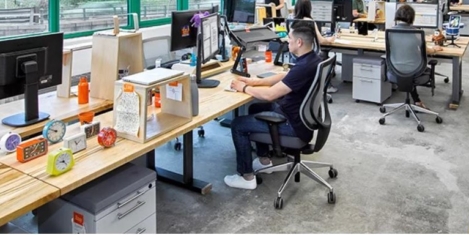To provide the best experiences, we use technologies like cookies to store and/or access device information. Consenting to these technologies will allow us to process data such as browsing behaviour or unique IDs on this site. Not consenting or withdrawing consent, may adversely affect certain features and functions.
The technical storage or access is strictly necessary for the legitimate purpose of enabling the use of a specific service explicitly requested by the subscriber or user, or for the sole purpose of carrying out the transmission of a communication over an electronic communications network.
The technical storage or access is necessary for the legitimate purpose of storing preferences that are not requested by the subscriber or user.
The technical storage or access that is used exclusively for statistical purposes.
The technical storage or access that is used exclusively for anonymous statistical purposes. Without a subpoena, voluntary compliance on the part of your Internet Service Provider, or additional records from a third party, information stored or retrieved for this purpose alone cannot usually be used to identify you.
The technical storage or access is required to create user profiles to send advertising, or to track the user on a website or across several websites for similar marketing purposes.
 Cities are fast becoming “smart”, and the impact on people’s lives can be immense. Singapore’s smart traffic cameras restrict traffic depending on volume, and ease the commute of thousands of passengers every day. In Kaunas, Lithuania, the cost of parking is automatically deducted from the bank accounts of drivers when they park their cars. In many cities, the timing of public buses is announced at each stop with almost perfect accuracy. And free WiFi is now accessible across entire cities, including Buenos Aires, Argentina (pictured) and Ramallah, Palestine. More →
Cities are fast becoming “smart”, and the impact on people’s lives can be immense. Singapore’s smart traffic cameras restrict traffic depending on volume, and ease the commute of thousands of passengers every day. In Kaunas, Lithuania, the cost of parking is automatically deducted from the bank accounts of drivers when they park their cars. In many cities, the timing of public buses is announced at each stop with almost perfect accuracy. And free WiFi is now accessible across entire cities, including Buenos Aires, Argentina (pictured) and Ramallah, Palestine. More →



































